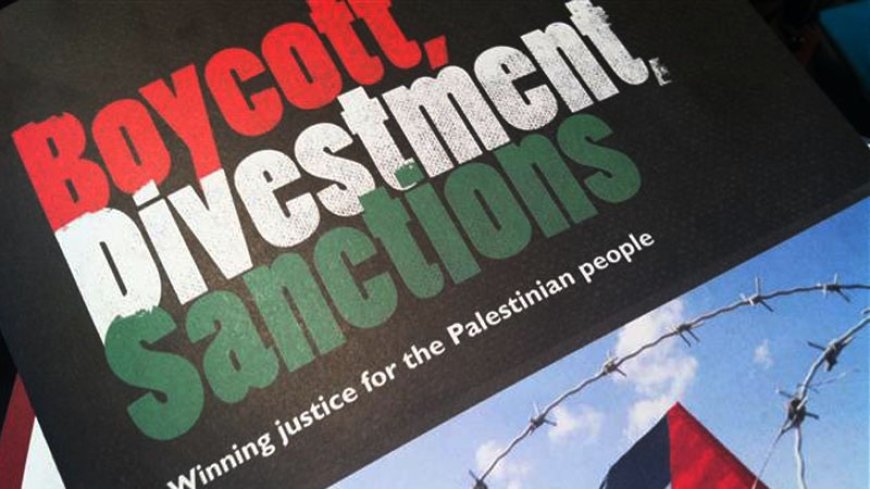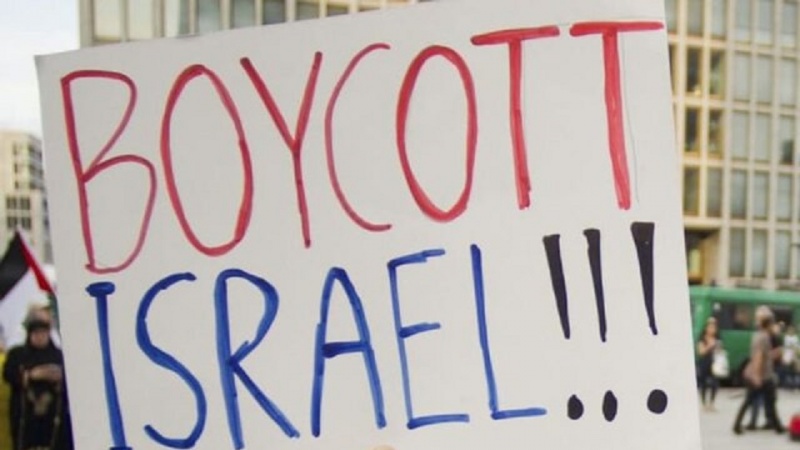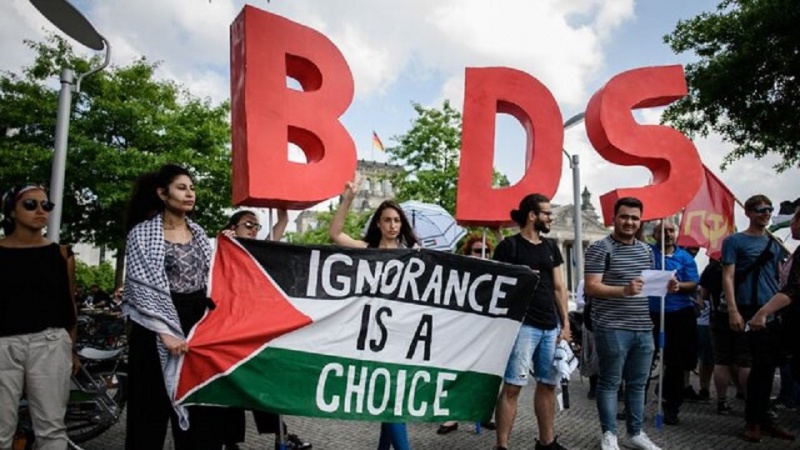Increasing international sanctions against the illegal regime of Israel
One of the clear measures to put pressure on and isolate the Zionist regime, which has gained momentum in recent months due to the continuation of the regime's bloody war in Gaza, is the expansion of the movement to boycott Israel at the international level.

One of the clear measures to put pressure on and isolate the Zionist regime, which has gained momentum in recent months due to the continuation of the regime's bloody war in Gaza, is the expansion of the movement to boycott Israel at the international level.
In this regard, the Wall Street Journal of the United States wrote in its report on Wednesday that the movement to boycott Israel following the continuation of its war of massacres in the Gaza Strip, has been expanding day by day in Western societies, especially after of universities to join this movement.
The Wall Street Journal indicating that the movement has the ability to affect trade unions, professions and the economy of the brutal Israeli regime, has written that the wave of protests by supporters of Palestine continues in various parts of the world, including universities in Western countries and other parts of the world, has greatly affected different sectors of the Zionist regime, including higher education. According to this newspaper, Israelis now see that many European universities no longer welcome Israeli academics and lecturers who have ties to the apartheid regime.

After starting the war in Gaza following the al-Aqsa Hurricane operation on October 7, 2023 and the unprecedented crimes of the Zionist regime against the oppressed people of Gaza, especially the genocide and the use of weapons of starvation against the residents of the region , citizens of many countries have stood against the crimes of the administration. By organizing demonstrations and large gatherings, especially in Western countries, they have demanded an end to the Israeli occupation and the rapid delivery of humanitarian aid to Gaza. The protests have also spread at the levels of educational institutions such as universities, where now in tandem with the growing pressure to isolate the Zionist regime, the movement to boycott the regime has gained a new impetus internationally.
At the same time, legal pressure has increased against Israel in an unusual way, including the prosecution of the apartheid regime in the highest courts of the United Nations, including the International Court of Justice ICJ and the International Criminal Court ICC .
Before that, the United Nations had called for increased sanctions against Israel with the aim of pressuring it to end the war in Gaza. Mishael Fakhri, the United Nations Special Rapporteur on the Right to Food, said in mid-June this year that: "What we need now is for Israel to be subject to economic and political sanctions." He emphasized the necessity of economic and political sanctions against Israel due to the failure of political pressures and repeated unanswered requests for Tel Aviv to stop the war and genocide against the people of Gaza.
Right now, the Zionist regime is not only witnessing an unusual increase in sanctions against its subsidiary institutions, including universities and educational institutions, but these sanctions have expanded to include military and weapons cooperation between Western companies and Israel. Regarding the issue, Neta Barak Koren, a law lecturer at the Jewish University in Quds, who created a special group to deal with the wave of sanctions against Israel during the Gaza war, says that international sanctions against academic institutions and higher education in Israel have doubled in the last two months, where now foreign organizations and educational institutions are refraining from dealing with Israeli institutions."

According to the Wall Street Journal, since the beginning of the attacks of the Zionist regime in Gaza following the al-Aqsa Hurricane operation on October 7, the field of activity of the movement supporting the boycott of the regime has been expanding every day and witnessing major fundamental changes. . Due to this operation and the events of the Gaza war, this movement has been able to achieve some of its long-term goals against Israel. The "Boycott, Divestment and Sanctions" (BDS) movement is an international campaign to put pressure on the Zionist regime due to the occupation of Palestinian lands and the construction of Jewish settlements in those lands, which was started in 2005 with the support of Palestinians 171. Since then, the movement has been able to find many followers in the world, including in European countries and the United States.
Benjamin Netanyahu, Prime Minister of the violent Zionist regime, has claimed about the movement that its founders are interested in "destroying Israel." The strategy of the "BDS" movement is to make a gradual change in boycotting Israel by removing investments in all economic, scientific, cultural, sports and military fields in the Palestinian lands occupied by Israel.
The strategy of this movement within the occupied lands of 1967 is based on setting restrictions and boycotting Israeli products and institutions and informing the Palestinians about the importance of these restrictions.
As we have entered the 10th month of the Gaza war, sanctions have been increased against Israel in various fields, even in Western countries, including Europe, the United States and Canada, thus clearly demonstrating to the Zionist rulers the nightmare of their continued isolation at the international level. .













































